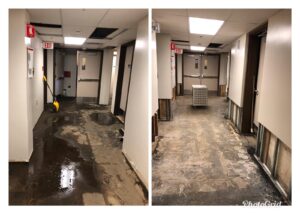Why Is Relapse Common in Addiction Recovery, and How Can It Be Prevented?
Relapse is often a part of the recovery journey for many people who struggle with addiction. Although reaching sobriety is a significant achievement, the path to maintaining it is filled with challenges. Relapse, or returning to substance use after a period of abstinence, can be disheartening but is a common experience that does not signify failure. Understanding why relapse happens and implementing strategies to prevent it can be essential steps for those working towards lasting recovery.
Understanding Why Relapse Occurs
Relapse happens for a variety of reasons, often influenced by individual psychological, social, and environmental factors. Common triggers for relapse include stress, social influences, and even certain emotional states. While each individual’s triggers may differ, there are a few universal causes that help explain why relapse is such a common part of addiction recovery:
1. Biological Factors and Cravings
Biological factors play a major role in relapse. Addiction fundamentally changes the brain’s chemistry, especially in areas responsible for motivation and impulse control. Over time, the brain starts to associate certain triggers—like places, people, or emotions—with substance use, leading to intense cravings even after months of sobriety.
These cravings can be powerful and difficult to resist, especially if the individual is exposed to similar cues that prompted substance use in the past. While the brain can heal over time, these cravings may take months or even years to fade entirely, making relapse prevention a long-term effort.
2. Emotional Triggers
Feelings of stress, loneliness, and frustration are common emotional triggers for relapse. Many people turn to substances as a coping mechanism, and without developing new, healthier coping strategies, they may find it hard to resist old habits when faced with emotional discomfort. These emotional triggers can appear unexpectedly, such as during a difficult day at work or after a conflict with a loved one.
Since addiction often serves as an emotional escape, unaddressed emotions can make an individual more vulnerable to relapse. Therapy and counseling can help individuals recognize and manage these triggers to prevent relapse.
3. Social Environment and Peer Influence
An individual’s social environment is one of the strongest determinants of recovery success. Social gatherings where alcohol or drugs are present can be particularly tempting. Additionally, relationships with friends or family members who still engage in substance use can make it more challenging to avoid relapse.
Sometimes, individuals may feel pressured to “fit in” or face fears of missing out, which can weaken their resolve to stay sober. Establishing a supportive social circle that respects the recovery journey is essential for preventing relapse and maintaining sobriety in the long term.
4. Lack of a Strong Support System
Recovery requires the support and encouragement of others. Many individuals relapse because they feel isolated or lack a strong support network. The role of support groups, friends, and family members is crucial to maintaining morale and keeping individuals accountable. Without this support, the recovery journey may feel overwhelming, leading some to seek comfort in substances.
Support networks can provide motivation and remind individuals of their progress, helping them resist the urge to relapse.
Strategies to Prevent Relapse
Although relapse is a common part of recovery, it can be managed and prevented through various strategies. Here are some effective ways to reduce the risk of relapse and build resilience:
1. Building a Relapse Prevention Plan
A relapse prevention plan is a personalized strategy that outlines specific steps to avoid returning to substance use. This plan includes identifying triggers, setting realistic goals, and developing coping strategies to handle difficult situations.
Having a structured plan helps individuals anticipate and prepare for challenging situations, making them more equipped to handle cravings and emotional triggers.
2. Engaging in Cognitive Behavioral Therapy (CBT)
Cognitive Behavioral Therapy (CBT) is an evidence-based approach that teaches individuals how to recognize and change negative thought patterns that lead to substance use. By understanding these thought patterns and replacing them with healthier responses, individuals can reduce their chances of relapse.
CBT also emphasizes building resilience against triggers and helps individuals learn practical ways to handle stress. Therapists guide clients through exercises that strengthen their ability to resist cravings, improve self-control, and address the root causes of their addiction.
3. Participating in Support Groups
Support groups like Alcoholics Anonymous (AA) and Narcotics Anonymous (NA) provide individuals with a community of people who understand their struggles. These groups offer encouragement, advice, and a sense of accountability, making it easier to stay committed to recovery.
Regularly attending support group meetings also helps to keep individuals motivated, reminding them that they are not alone in their journey. The shared experiences in these groups can be incredibly uplifting and reinforce the importance of staying sober.
4. Developing Healthy Coping Mechanisms
Replacing substance use with healthy coping mechanisms can make a significant difference in preventing relapse. Physical activities, hobbies, and mindfulness practices like meditation or journaling offer healthy outlets for managing stress and emotions.
By building these habits, individuals can redirect their energy and focus away from substance use. Moreover, engaging in activities that bring joy and relaxation helps to fulfill the emotional void that addiction once filled.
5. Establishing a Supportive Environment
Creating an environment that supports sobriety is essential. This means avoiding places, situations, or individuals that may encourage substance use. For some, it may even mean changing certain aspects of their daily routine to minimize contact with potential triggers.
Rearranging their living space, removing reminders of past substance use, and spending time with supportive people are practical steps to foster a positive environment for recovery.
6. Seeking Ongoing Therapy and Counseling
Recovery is a lifelong process, and regular therapy or counseling sessions can offer continuous support. Ongoing therapy can help individuals navigate the ups and downs of life without resorting to substances. It provides a space to address emerging triggers, adapt to life changes, and gain additional coping strategies as needed.
Whether through individual counseling, family therapy, or group sessions, maintaining a therapeutic relationship allows for a proactive approach to preventing relapse.
Recognizing Relapse as Part of the Recovery Journey
Relapse is often seen as a setback, but it’s important to view it as a learning opportunity rather than a failure. When relapse occurs, it gives individuals a chance to evaluate what might have gone wrong and adjust their approach to recovery. Relapse can highlight areas that need additional attention, such as unresolved emotional issues or unaddressed triggers.
By reframing relapse as a stepping stone, individuals can bounce back stronger and more committed to their recovery journey. Professional support, guidance, and a compassionate approach make it possible to learn from relapse and move forward with confidence.
Conclusion
Relapse is a common part of the addiction recovery process, yet it does not define an individual’s ability to achieve lasting sobriety. By understanding the biological, emotional, and social factors that contribute to relapse, individuals and their support systems can better prepare for and prevent it. Through structured planning, ongoing therapy, and a supportive environment, individuals can build resilience against relapse and make steady progress on their journey.
Recovery is not always a straight path, but with the right strategies in place, long-term sobriety is possible. At Nasha Mukti Kendra in Sangrur, individuals receive comprehensive support, from relapse prevention planning to therapy and community resources, creating a nurturing environment for sustained recovery.














Post Comment